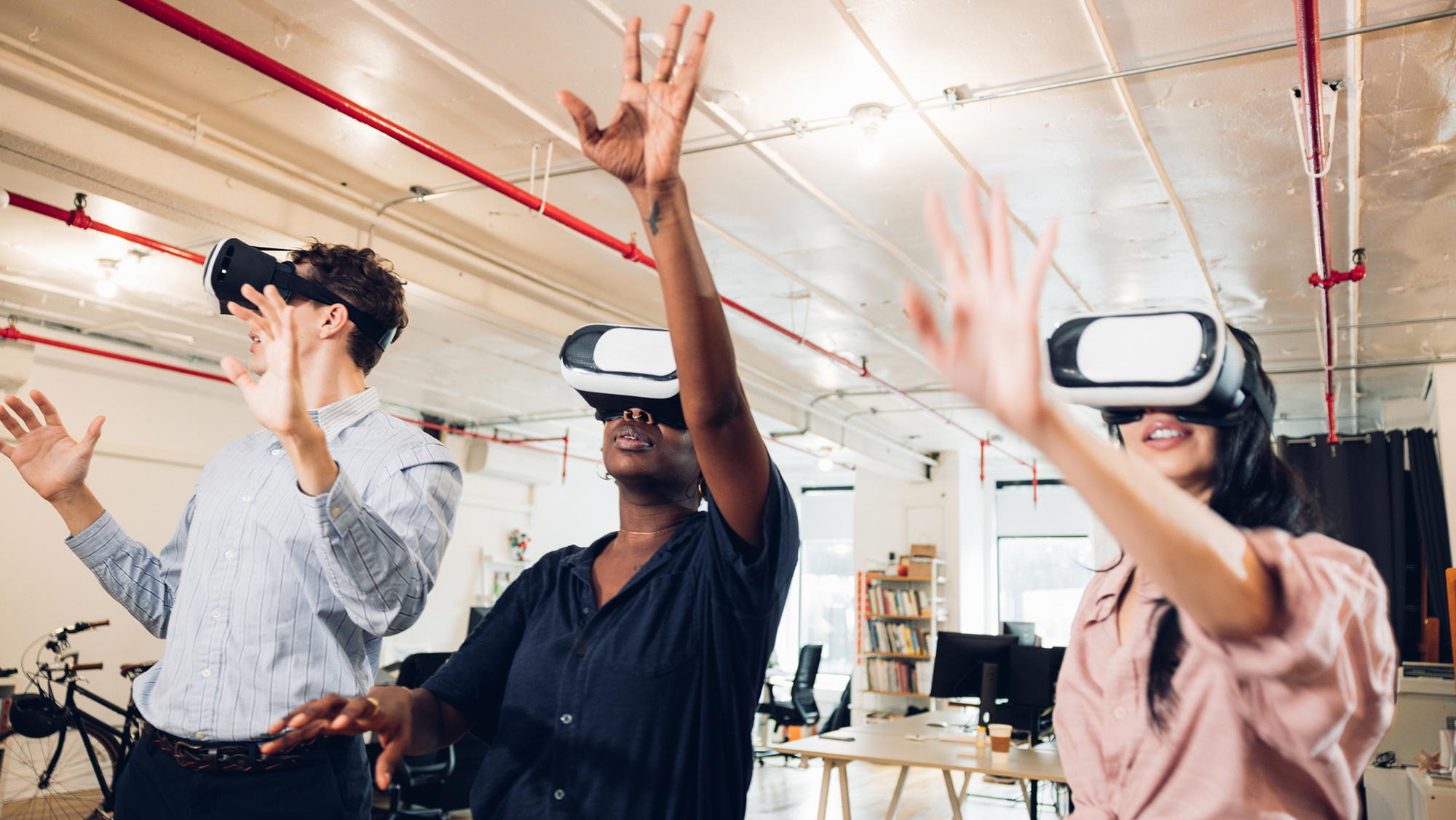
Dr. Donggil Song, an associate professor in the Department of Engineering Technology and Industrial Distribution, is creating artificial intelligence (AI) applications and AI-based virtual reality (VR) platforms to provide dynamic and immersive educational experiences. Song’s innovations include a VR platform aimed at advancing college algebra education and a generative AI app used to strengthen the communications skills of medical students. His Human-AI Collaboration Engineering Lab, Einbrain, plays a central role in both projects.
Algeverse: Revolutionizing College Algebra Education
With funding from the National Science Foundation, Song is applying AI-based VR technology to improve student learning in college algebra curricula. The Texas A&M Engineering Experiment Station is collaborating with Prairie View A&M and The University of Texas at El Paso on the project.
The centerpiece of the initiative is Algeverse, a VR platform designed to boost student comprehension and retention rates and advance research in STEM education.
Researchers will develop 50 hours of integrated STEM lessons for college algebra embedded as modules in Algeverse. Students will use Meta Quest VR headsets to explore the interactive algebra content, immersing them in an environment intended to foster deeper understanding. "With our VR system, students connect with AI-powered mentors who support and inspire their learning journey," said Song.
The research team will gather extensive data, tracking student interactions with the VR system as well as metrics on motivation, engagement, and learning outcomes. This data will inform the development of strategies to improve student success in algebra, particularly among students who often face challenges in this foundational subject.
As research continues, Song is optimistic the platform will result in stronger performance for STEM students and potentially revolutionize the way college algebra is taught.
MedChat: Improving Medical Communication

MedChat is a generative AI application that addresses one of the most difficult aspects of medical practice: delivering life-altering diagnoses to patients.
Through MedChat, students engage in realistic interactions with virtual patients, practicing how to communicate complex medical information with empathy and professionalism. Whatever emotion the virtual patient expresses, from confusion to denial to distress, MedChat responds accordingly, creating a nuanced learning experience.
After each session, students receive immediate evaluations generated by the system. The feedback covers essential aspects such as tone, word choice and emotional sensitivity, helping students understand the impact of their communication style.
“MedChat is a game-changer,” said Song. “It provides a safe environment where medical students can hone their communication skills without the emotional or ethical stakes of practicing on real patients. It bridges the gap between theoretical knowledge and real-world practice.”
The College of Osteopathic Medicine at Sam Houston State University has incorporated MedChat into its curriculum. One student stated, “It’s one thing to learn about patient care in a classroom, but it’s entirely different to navigate a conversation where every word matters. MedChat helps us find that balance between delivering necessary information and showing compassion.”
MedChat introduces not only a tool for skill-building but also a benchmark for how technology can address the complexities of patient-doctor interactions. It aligns with the growing trend of incorporating artificial intelligence into medical education. Song feels the app has great potential to enhance healthcare quality by better preparing future physicians to provide not only competent but compassionate care.
A Vision for the Future
Song’s work represents a shift away from traditional teaching methods. By creating immersive and interactive learning environments with tools such as AI and VR, students benefit from more personalized and engaging educational experiences. These technologies may reshape how students connect with course material, ultimately improving academic outcomes. Looking ahead, Song anticipates that AI and VR will become integral components of curricula across a range of disciplines.
